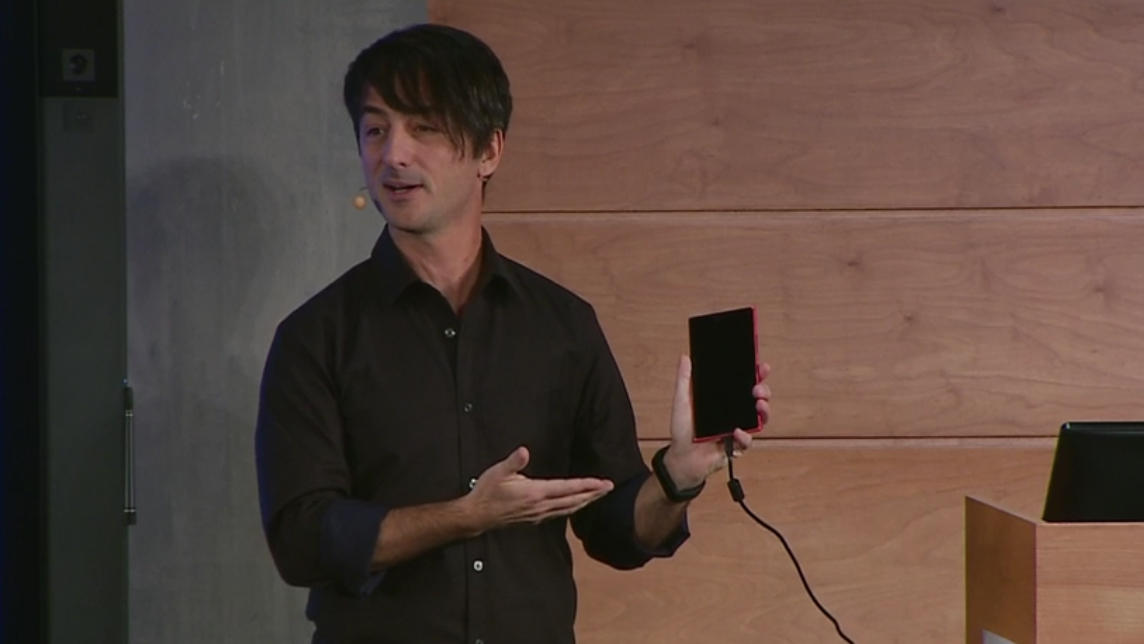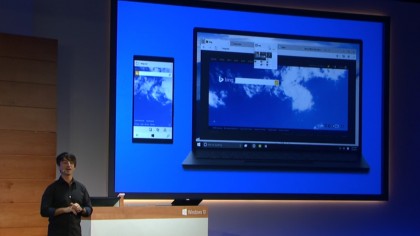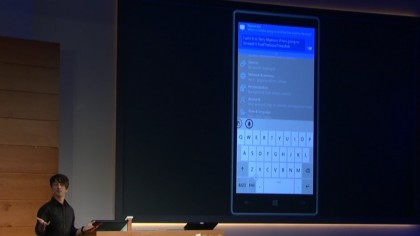Windows Phone just died
It's all about a PhonePCTablet now

Have you got a Windows Phone? You won't for much longer.
That's not to say you're suddenly going to be one victim in a mass mugging, but that your phone is about to change massively.
You see, Microsoft just killed Windows Phone. Gone. No more. It's an ex-operating system. It won't happen now, nor in the next 6 months, but the countdown has begun on any handset called a Windows Phone.
But in that vacuum Microsoft is sticking Windows 10. The same one on PC, 2-in-1 devices or tablets is coming to your phone, and that's going to bring with it a whole host of new features to play with.

The problem Microsoft has had for so long is it hasn't been able to properly marry up the stuff it does on your desktop with that in your phone. Sure, it had some cloud stuff, but the phone and desktop were still merely awkward cousins.
With so many companies working to streamline services together (something Microsoft has always tried to do better than anyone else with its myriad arms) it seemed odd that you had to jump through hoops to get something on your phone when it was so easy to access on a PC.
The new version of Windows Phone will just be Windows 10. Well, it'll be a Windows 10 phone, but that's as far as the distinction will go.
Get daily insight, inspiration and deals in your inbox
Sign up for breaking news, reviews, opinion, top tech deals, and more.
The big difference you'll notice won't be visual (yes, background images will bleed through the tiles on the home screen, but that's not a massive departure) but cooperative: if you own a Windows PC, your phone will feel a very familiar place (and vice versa).
Microsoft is betting hard that if it gets the 'big' Windows right, selling the smaller version won't be so tricky.
Settings menus will be similar - dragging down and getting more settings to alter, for instance, will appear in both places - and apps will work universally. Outlook will look the same on both devices, although perhaps a little smaller on phones. The Office Ribbon will come to play in the Word app on your handset, with PowerPoint looking as powerfully on point from a wireless beamed presentation on your phone.
This is Microsoft's new vision: encouraging users to buy into its new ecosystem and then keep flipping between devices without noticing anything being lost.
Haven't we seen this before?
The problem is that, purely from a phone buyer's perspective, that's not really a reason to choose a smartphone from Microsoft over one from Apple or HTC. The new tricks are nice, and things like better voice dictation and keyboard upgrades are cool, but it doesn't suddenly have a much better app catalogue, which is the BIG thing Microsoft needs to fix.
And while I keep hearing that apps made for Windows 10 will work on the phone version, Microsoft has yet to properly confirm that. It hasn't made the bold, sweeping gesture on stage to say 'every developer that makes something for the desktop will have also made something for a phone', which is what would really make developers sit up and take notice.

Perhaps that's unfair - as Desire Athow, editor of TechRadar Pro, says: 'It would be prejudicial for them to make that statement at the moment', especially as there's still a long, long road to walk down before Windows 10 makes it out into the hands of the everyday consumer.
But there's very little here that makes me believe that Microsoft has just given Windows Phone (sorry, Windows 10… for phones) the shot in the arm it needed to start being a real consideration against the drives of Android and iPhones being sucked up.
Windows 10 is going to be an excellent mobile OS, in much the same way that Windows Phone 8.1 was really starting to hit its stride. The interface is fun and clean, the functionality strong, and the hardware on offer… not terrible.
But it was clouded by reams of settings, too few apps and underpowered hardware compared to the rest of the market. Windows 10 fixes that to quite a large degree, but it still doesn't push the brand ahead of the market.
Perhaps if Cortana can really be shown as superior to the might of Google Now - quickly becoming scarily unerring in working out speech and intention - Microsoft will have a chance to push its mobile message back into the market.
Windows Phone is dead. Windows 10 is here to take its place by being better, faster and more intuitive than ever before… but that's not going to convince most to switch still.

Gareth has been part of the consumer technology world in a career spanning three decades. He started life as a staff writer on the fledgling TechRadar, and has grew with the site (primarily as phones, tablets and wearables editor) until becoming Global Editor in Chief in 2018. Gareth has written over 4,000 articles for TechRadar, has contributed expert insight to a number of other publications, chaired panels on zeitgeist technologies, presented at the Gadget Show Live as well as representing the brand on TV and radio for multiple channels including Sky, BBC, ITV and Al-Jazeera. Passionate about fitness, he can bore anyone rigid about stress management, sleep tracking, heart rate variance as well as bemoaning something about the latest iPhone, Galaxy or OLED TV.